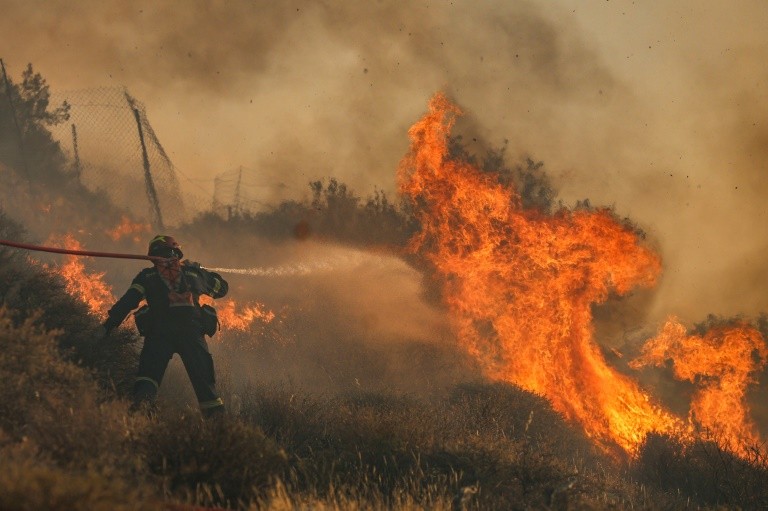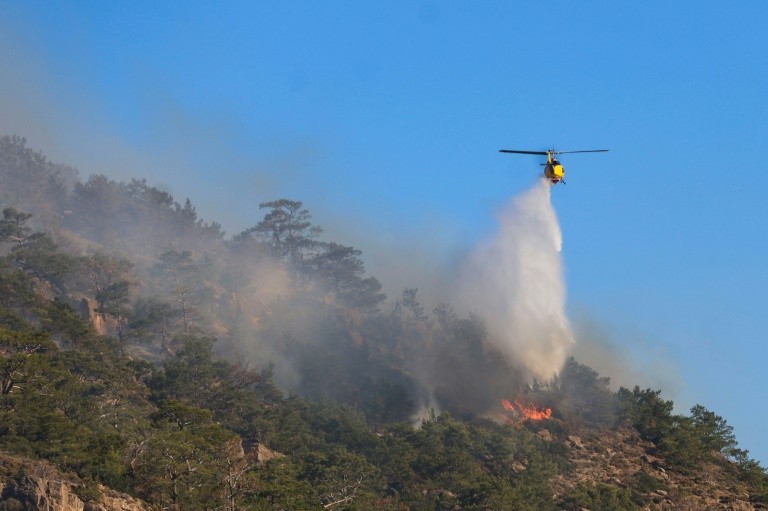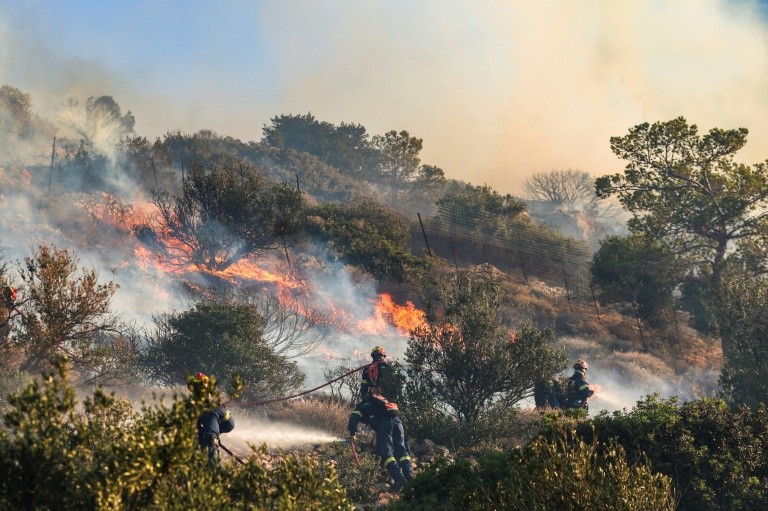
A wildfire fanned by gale-force winds on the southern Greek island of Crete has forced the evacuation of residents and tourists, officials said on Thursday.
Hot dry weather in Greece, which is not unusual for this time of year, has heightened the risk of a repeat of the summer wildfires that have hit the country in recent years.
Media reports said around 1,500 people had to be evacuated because of the blaze, which broke out on Wednesday evening.
"Evacuations took place in numerous hotels and tourists were safely transferred to a closed gymnasium in the municipality of Ierapetra," vice-prefect Yannis Androulakis told TV channel Mega, referring to the holiday town in the southeast.
The authorities acted because water bomber planes could not reach the affected areas overnight, he added.
"At the moment, there are three active fronts," Androulakis said. "Because of the strong winds, the fire has progressed quite rapidly."
Around 270 firefighters, 10 helicopters and drones have been deployed to tackle the blaze, said Vassilios Vathrakoyannis, a spokesman for the fire service.
They include reinforcements sent in from the capital, Athens.
"There are still a number of different fronts. The fire is burning scrubland and crops," he said.
"The winds are very strong -- up to nine on the Beaufort scale."
Crete, Greece's largest island, has an arid, uneven landscape criss-crossed by gullies, making it difficult for firefighters to tackle the blaze.
The fire damaged houses and crops in fruit and vegetable greenhouses, media reports said.
Like the rest of Crete, Ierapetra -- a seaside resort with a population of 23,000 - takes in thousands of tourists in the summer.
Vathrakoyannis said the authorities would assess the damage once the fire had been brought under control.
The risk of fires was "considerable" in July, the hottest month of the year in Greece, he added.
Greece has largely escaped a heatwave that has gripped other parts of southern Europe.
The country recorded its hottest-ever summer last year when 45,000 hectares (110,000 acres) of land was burned, according to WWF Greece and the Athens National Observatory.
In terms of surface area destroyed, 2023 was the worst on record.
Nearly 175,000 hectares were obliterated and 20 people died during heatwaves when temperatures rose in places to 46 degrees Celsius (115 degrees Fahrenheit).











